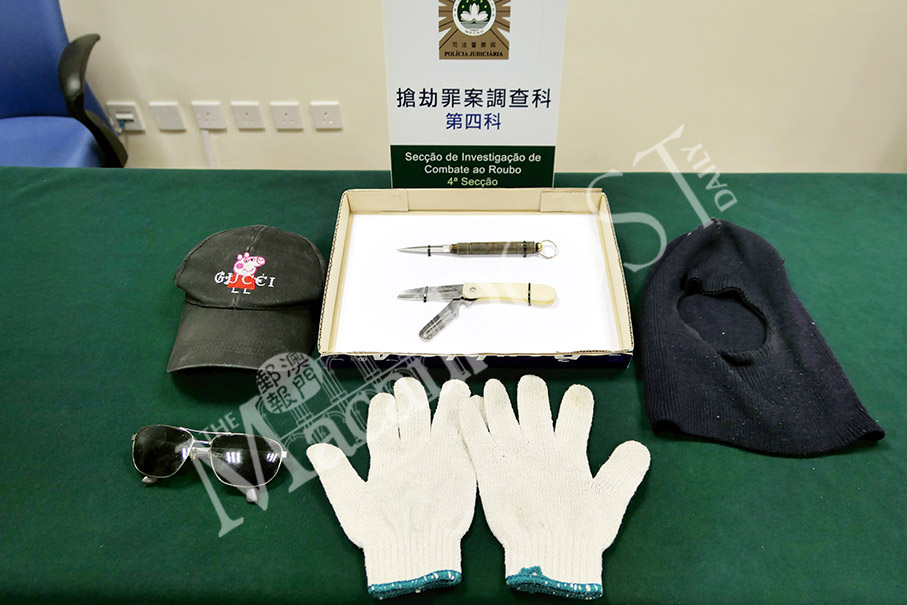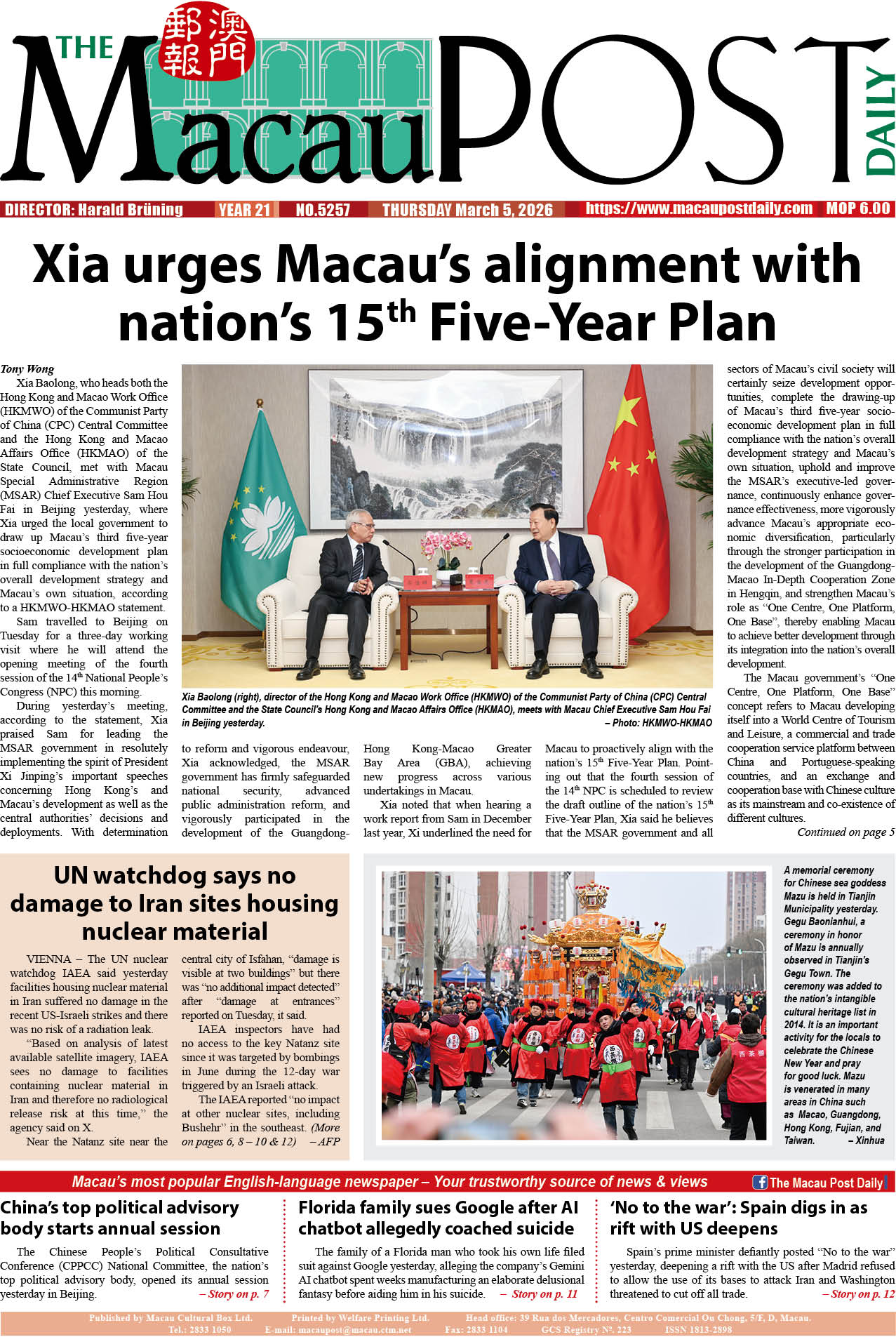As part of the initiatives and activities launched during the Macau Institute for Tourism Studies’ (IFTM) 10th edition of its ‘Healthy and Green Month’ in early September, the higher education institution has implemented a long-term ban on plastic bottled drinks in its campus vending machines.
According to a statement by IFTM, during its Healthy and Green Month, healthy living and environmental sustainability are encouraged through the events that the public institution holds.
Speaking with The Macau Post Daily yesterday, Julie Ip from the secretariat of the IFTM’s Environmental Management System Committee (EMSC), said that the initiative was taken as plastic bottles are used in great volumes around the world, including Macau.
At the same time, the percentage for recycling the bottles in Macau is “very low” despite recycling bins that allow the segregation of plastic bottles from other items, Ip noted. A decision to “start from the very beginning” by looking at the source of the plastic bottled drinks and cooperating with their suppliers of vending machines to remove plastic bottled drinks was then decided upon, she pointed out.
Ip said that IFTM has been encouraging students to bring their own bottles and to use water dispensers for a few years already, which are widely available on its campuses. The ban also extends to IFTM’s Educational Hotel, Pousada de Mong-Há, which also has water dispensers available instead of bottled drinks.
Despite the ban, Ip noted that students and faculty still have other choices from the on-campus vending machines such as boxed drinks or drinks in aluminium cans. In addition, understanding that water is a necessity, she pointed out that boxed water is available from IFTM’s vending machines.
Steve Fok, who also works for the secretariat of EMSC, said that the availability of boxed water was a “contingency” arrangement for those who do not have a water bottle. However, he quickly added that their target is not to encourage people to buy them, but to instead use the available water dispensers on campus.
Ip and Fok also work at the IFTM Educational Hotel.
When asked what they hoped to achieve with the ban, Ip said that as IFTM is the first local campus to implement this, they hoped “to lead so that others follow in the same direction”. She continued by saying that when vendors see that more campuses are doing this, it could result in more non-plastic bottled drinks to be sourced and be available for selection. She said that IFTM hopes to educate its students about these ideas because “they are our future and they will take all these ideas with them to society after they leave school.”
Aside from a ban on plastic bottled drinks, the green practices of the Educational Restaurant and canteen were also mentioned during yesterday’s interview conducted via Zoom. Speaking about IFTM’s food waste management programme, Hans Rasmussen, the restaurant’s acting general manager, said that the institute has a food decomposer where food waste can be transformed into soil. IFTM will also have a new system, a scale and artificial intelligence (AI) system called the ‘winnow’ to recognise food items or ingredients and analyse the amount of food that is wasted, from which data can be gleaned to help reduce it, according Rasmussen.

The poster provided by IFTM during yesterday’s interview shows IFTM’s ban on plastic bottled drinks. Photo: IFTM







